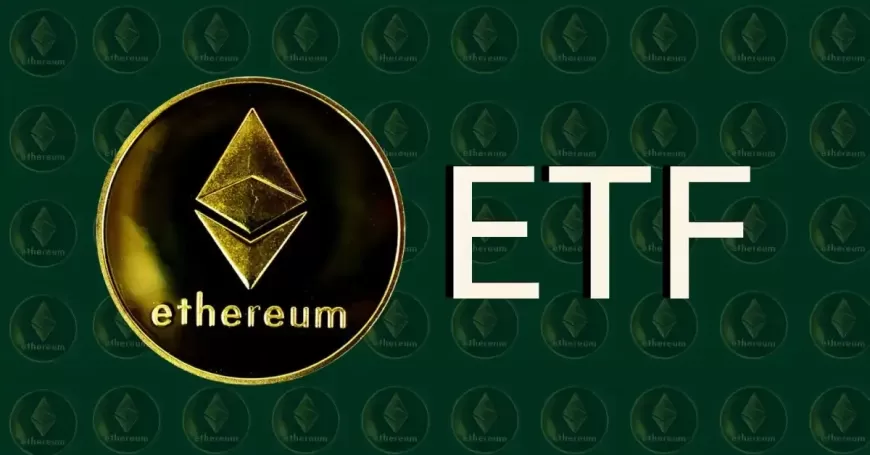SEC to Approve Spot-Ether ETFs: Major Milestone for Cryptocurrency Market
SEC set to approve the first US spot-Ether ETFs. Learn about this key milestone for the crypto market and what it means for investors and the industry

The US Securities and Exchange Commission (SEC) is set to approve the first exchange-traded funds (ETFs) that invest directly in Ether, the second-largest cryptocurrency in the world. According to filings and statements from asset managers, companies like 21Shares AG, Bitwise Asset Management Inc., BlackRock Inc., Invesco Ltd., Franklin Templeton, Fidelity Investments, and VanEck have received approval. The SEC has not yet commented on this development.
This approval is a big step forward and shows that the US is becoming more open to digital assets. It comes as Donald Trump, who is leading in the polls for the upcoming presidential election, has shown support for cryptocurrencies.
"Our clients want easy access to digital assets through exchange-traded products (ETPs), which offer convenience, liquidity, and transparency," said Jay Jacobs, US head of thematic and active ETFs at BlackRock.
Fee Competition Among Issuers
The SEC's approval of spot-Ether ETFs follows a recent change in May when the agency started allowing Bitcoin ETFs after a court ruling in 2023. Ether is the main cryptocurrency of the Ethereum blockchain, which is important for crypto-based financial services. To attract investors, companies like BlackRock and Fidelity are temporarily lowering or waiving fees on their Ether ETFs.
Bitcoin ETFs have been very successful, attracting about $17 billion in net inflows since they launched in January. However, expectations for Ether ETFs are more modest. Digital-asset market maker Wintermute Trading Ltd. expects annual inflows for Ether products to be between $4.8 billion and $6.4 billion in the first year. They also suggest that actual demand might be lower, ranging from $3.2 billion to $4 billion.
Challenges and Opportunities
Unlike Bitcoin, which is often seen as digital gold, Ether does not have the same reputation. Also, Ether ETFs will not offer staking rewards, which are returns earned by helping maintain the blockchain. This might affect investor interest, as staking is a big part of Ether's ecosystem.
While Bitcoin is classified as a commodity, the SEC sees most other cryptocurrencies as unregistered securities that should be regulated. Staking further complicates Ether's classification, and SEC Chair Gary Gensler has not clearly stated if Ether should be considered a security.
Over the past year, Bitcoin has increased by 132%, reaching a peak of nearly $74,000 in March. Ether has risen by 88% during the same period. As of 11:45 a.m. in Singapore on Tuesday, Bitcoin was trading at $67,530, and Ether at $3,475.
In addition to Ether ETFs, VanEck and 21Shares recently filed for a product that invests in Solana, the fifth-largest cryptocurrency by market value. This shows that ETF issuers are continuing to look for ways to meet the growing demand for digital assets.
Also Read: Crypto Industry Looks to Benefit from Possible Trump Re-election































































